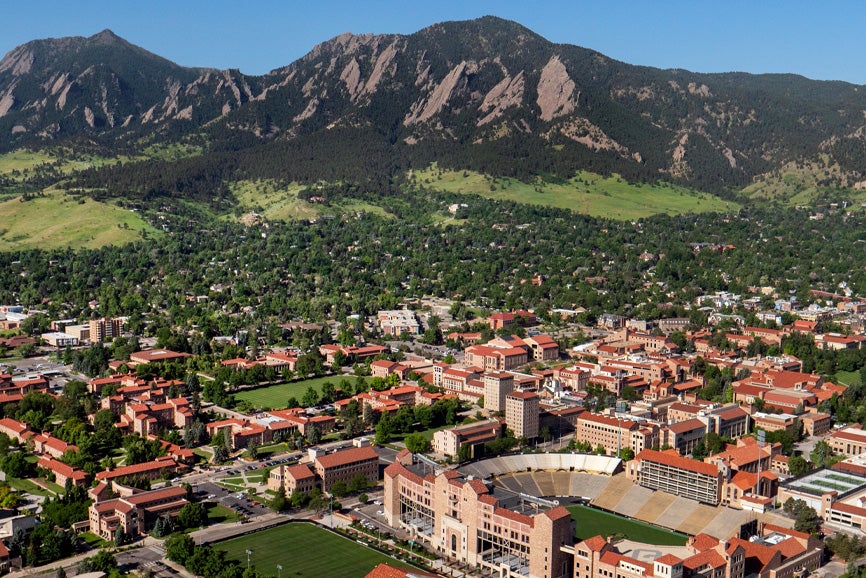University of Colorado finds Dean Lolita Buckner Inniss retaliated against me

Six days after I settled my lawsuit against the University of Colorado and the dean of its law school, the university’s Office of Institutional Equity and Compliance concluded an 18-month investigation, that included interviews of 23 people, and determined that Dean Lolita Buckner Inniss had violated the university’s anti-discrimination policies (which are modeled on the relevant federal anti-discrimination statutes that we sued under), by retaliating against me when I reported discrimination to her.
Here’s a news story on the finding:
An investigation conducted by the University of Colorado Boulder found that a dean violated university policy by retaliating against a professor who reported discrimination..
Paul Campos, a law professor at CU Boulder, filed a complaint with the university in 2022 reporting he faced discrimination and retaliation from Law School Dean Lolita Buckner Inniss. Campos later filed a lawsuit against the university and Inniss in June of 2023. A settlement agreement was reached and both parties signed a dismissal of all claims on Feb. 13.
“When our settlement was announced, the university issued a statement saying it denied any wrongdoing had occurred, and, because there had been no wrongdoing, Dean Inniss would retain her position,” Campos said in an email. “Almost immediately after the university issued that statement, the university’s own 18-month investigation of the dean concluded that Dean Inniss had engaged in actions that violate federal civil rights laws, designed to protect people from being retaliated against when they report unlawful discrimination.”
The university’s investigation was conducted through CU Boulder’s Office of Institutional Equity and Compliance. OIEC finalized its conclusion of the investigation on Feb. 19, about six days after the lawsuit wrapped up. In the settlement agreement, CU Boulder denied any wrongdoing.
“The settlement process and the OIEC investigatory process are two independent processes and serve independent functions at our university,” CU Boulder spokesperson Nicole Mueksch said in a statement. “Lawsuits and settlements are managed by the Office of University Counsel at the system level and OIEC complaints are investigated by the Office of Institutional Equity and Compliance on the CU Boulder campus.”
Mueksch said the terms of the settlement, including that the university denies wrongdoing, are maintained. With respect to the OIEC investigation, Mueksch said the university upheld its responsibility to investigate reported behavior that may violate university policies or state and federal laws.
Inniss declined to comment on the matter.
OIEC is responsible for implementing and enforcing policies including discrimination and harassment. Faculty, staff and students can file a complaint to OIEC and it will determine whether to conduct an investigation.
OIEC issues a “determination regarding responsibility” report at the end of an investigation. That report for Campos’ investigation, obtained through a public records request, concluded that “the OIEC finds (Inniss) responsible for violating the University of Colorado Boulder Discrimination and Harassment Policy’s prohibition on retaliation.”
According to the report, Campos said that Inniss removed him from his position on a faculty committee because he reported discrimination and indicated possible legal action. Campos claimed that he was discriminated against by Inniss and the university because he received unequal pay due to his Latino ethnicity and was punished for taking paternity leave as evidenced by a low annual review score. OIEC reviewed the discrimination allegations separately and did not find grounds to pursue a formal investigation.
Campos said in the report that Inniss did not give him another assignment after removing him from the faculty committee, hurting his ability to fulfill the service aspect of his faculty role.
“Now that the university itself has reached this conclusion, my attorney and I are asking a simple question,” Campos said. “How can the deanship of the university’s law school continue to be occupied by someone who violated the most basic rules of federal civil rights law after a faculty member reported discrimination to her?”
The OIEC determination doesn’t immediately result in any action. Both parties will have an opportunity to appeal and provide other relevant information before any final determinations or remedial actions can be taken.
If Inniss is found in violation of university policy following the appeal process, Provost Russell Moore along with human resources and OIEC will decide if and what action will be taken.
A small but significant correction to the last graph is that the university’s rules require a sanction against anyone who violates the school’s anti-discrimination policies. I will be meeting with the Provost to discuss just what those sanctions ought to look like.
Background here.


